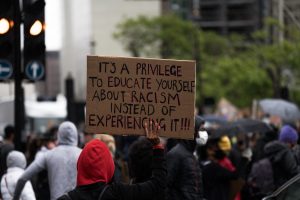Earlier this year, I became aware of a WPA project from the 1930's that really helped me understand how institutional racism evolved and still exists.
In the height of the Great Depression, the WPA provided work for blue collar workers. The Federal Writers Project helped employ white collar workers. One of their projects was interviewing former slaves about their lives.
The Slave Narrative Collection was compiled from interviews with former slaves across the country, but primarily in the Deep South.
I recently read the South Carolina narratives. I wasn't shocked by the brutality or inhumanity of slavery.
What shocked me was that during the Great Depression, elderly former slaves often recounted that life was better under slavery. Why? Because during slavery they had more reliable food sources.
This year in particular it seems very fitting to explore this aspect of #InstitutionalRacism. Although the Civil Rights Act was passed in 1964, people of color still earn less than their white colleagues. To be sure, pay equality is still a women's issue, too. But pay inequality is even more magnified when viewed through the lens of race.
Institutional racism goes far beyond income, though. I see it in “the look” my friends of color get in public. Sadly, I also see it when I smile at a stranger who happens to be a different race than I am. At first they are cautious, then they smile broadly, delightedly. when they realize I'm just trying to be friendly. It happens in an instant, but if you watch carefully and pay attention, you'll see it. It's just pure joy of making a human connection. It's unexpected because tragically, many of us are conditioned to be cautious when we meet people who don't look like us.
If you haven't experienced what it's like to be a minority, an outsider, or my newest favorite term, a sassanach, I urge you to travel. Then imagine what it's like to be an outlander in your own home country.
So, what can we do to overcome institutional racism? Protest and donate, for sure. I do both of these, but honestly my greatest moment of power comes when I exercise my right to vote. And don't take this right lightly. The Supreme Court chipped away at The Voting Rights Act of 1968 in 2013. I certainly don't have all of the answers, but I do believe that if we can solve gerrymandering, big money in politics, access to polling places, mail in voting, and holding our elected officials accountable we'll see change at the federal and state level. But as they say, all politics are local, so real change has to happen in our hometowns during personal interactions in our neighborhoods. Are you with me?
